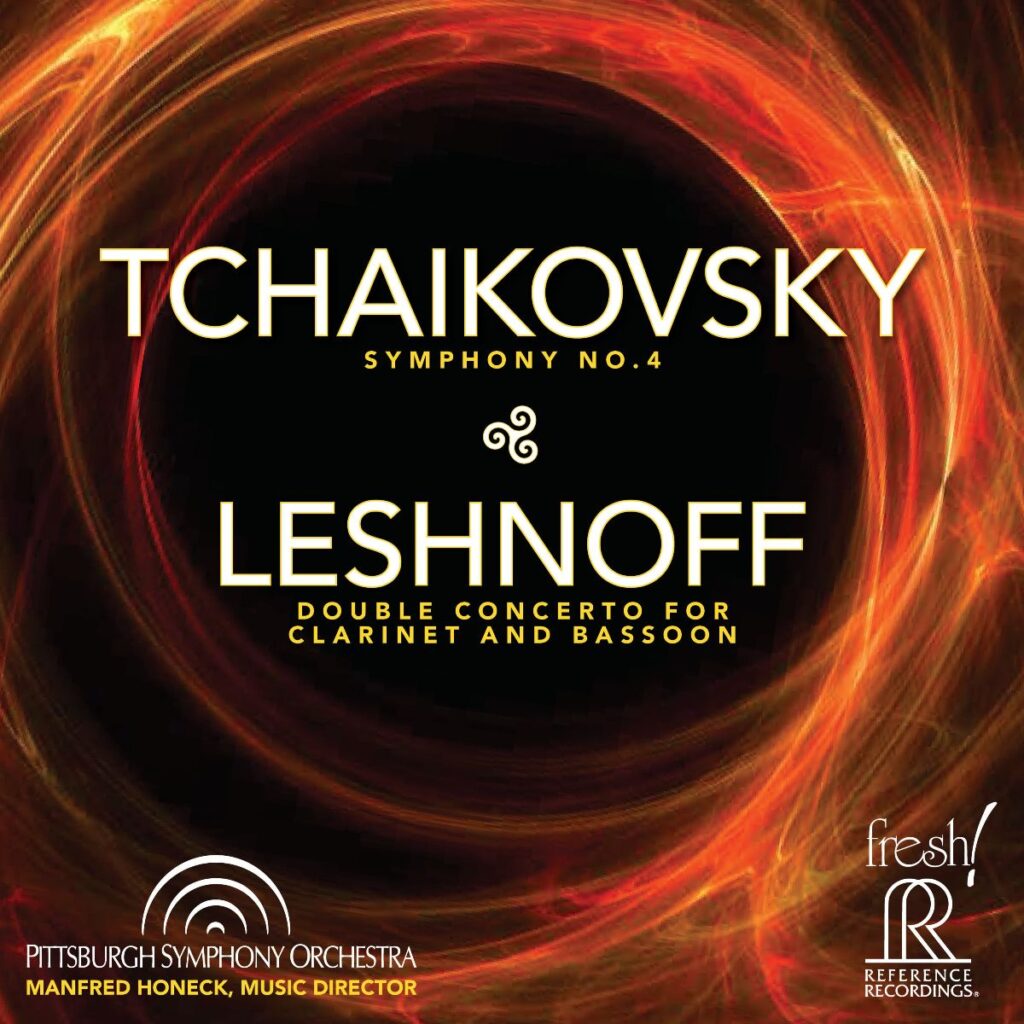
We at Culture Spot are always thrilled to get a new release from Reference Recordings of Manfred Honeck conducting the Pittsburgh Symphony Orchestra, and the new recording of Tchaikovsky’s Symphony No. 4 is no exception.
One thing we’ve come to expect from Honeck and the PSO is an exciting interpretation and performance of whatever work they are performing, and they didn’t disappoint with the Tchaikovsky. Honeck’s modus operandi include quieter pianissimos, louder fortissimos and wider dynamic ranges than composers indicate in their scores, and the Tchaikovsky fourth is a perfect vehicle for these.
Honeck also has been known to take liberties with scores. For example, in the liner notes, which Honeck always writes, he indicated that in one small section of the fourth movement, he asked the cellos and basses to play an octave lower “to achieve a greater tonal impact.” In fact, one notable feature of Honeck’s interpretations is that before crescendos he often has the orchestra play even more quietly for maximum effect of the crescendo, and he uses this technique throughout the Tchaikovsky. Honeck’s vision of the Tchaikovsky fourth symphony is not only a wonder but it is played wonderfully by the PSO.
Tchaikovsky loved the symphony, saying “I adore terribly this child of mine; it is one of only a few works with which I have not experienced disappointment,” and “…it seems to me that this is my best symphonic work.” Of course, these words were penned before he composed his Symphony No. 6 “Pathetique.”
The dramatic first movement, which Tchaikovsky said represented the “fateful power that prevents the urge for happiness from reaching its goal,” is played even more dramatically by Honeck and the PSO, with well-placed rests and dynamic variations.
The second movement—Andantino—begins with a lonely oboe playing the main melody and then builds to a rousing fortissimo for the whole orchestra, which reminds one of a similar passage in the Romeo and Juliet Fantasy Overture, before ending quietly with the bassoon playing the same melody.
The third movement, in which the strings play the entire movement pizzicato, starts out barely audible but builds to a rousing fortissimo toward the end before ending as quietly as it began.
And the fourth movement begins joyfully, but then that fateful theme from the first movement rears its ugly head. However, joy and happiness win out, and the movement comes to a rousing conclusion. If there is any criticism of Honeck’s interpretation it’s his “unrestrained, wild increase in tempo until the end.” For this reviewer, the increase in tempo in the last minute was too much too fast and out of sync with the tempo in the rest of the movement. It distracted from an otherwise great performance.
An outstanding performance of the Tchaikovsky Fourth by Honeck and the PSO was expected. The real surprise was the beautiful Double Concerto for Clarinet and Bassoon by the American composer Jonathan Leshnoff with PSO Principals Michael Rusinek (clarinet) and Nancy Goeres (bassoon).
For those who recoil from contemporary music, have I got a piece for you. The Leshnoff Double Concerto is an 18-minute gem. It’s unusual combination of clarinet and bassoon with orchestra is a delight, and Leshnoff’s writing for the two instruments is virtuosic and superb, as is the playing by the PSO principals.
The piece is in three movements and is full of exquisite and haunting melodies reminiscent of Vaughan Williams and Richard Strauss, the latter of whom toward the end of his life wrote an oboe concerto and a Duett-Concertino for Clarinet and Bassoon. Leshnoff’s concerto begins delicately and sublimely and ends with a bang. In between is some very fine writing not only for the soloists but for the orchestra as well.
Kudos to Honeck and the PSO for featuring such a refreshing piece of new music alongside one of the great Romantic symphonies. Another winner from Honeck and the PSO!
—Henry Schlinger, Culture Spot LA
This CD will be released on Friday, May 22: https://referencerecordings.com/recording/tchaikovsky-symphony-no-4-leshnoff-double-concerto/.





